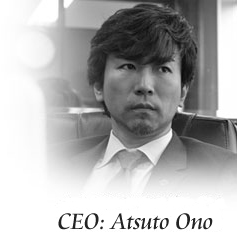

Greetings. My name is Atsuto Ono Hanjiro VIII.
In the ancient apprenticeship system of Japan, artisans inherit the name of the founder of their trade. Names are passed down from one generation to the next by old masters to the new. The title “Hanjiro” has been bestowed upon successive presidents of this company since the founder, Hanjiro Katori, died in 1909.
At the end of 2014, Seichi Someno, the 4th and 7th Hanjiro of Someno’s Tofu, passed away at the age of 96. He had lived a good, long life under the rein of three emperors. Although he was born only fifty years after the end of Japan’s golden Edo era (during which this company was established), he seemed to possess the best qualities of Old Japan in ways that would profoundly affect my life.
My father-in-law, Kenkichi Someno, was a distant relative of Seichi’s. Kenkichi was a tofu maker who ran an independent line called Someno Tofu Ten that could trace its beginnings back to the same family business as Seichi’s. When my father-in-law suddenly passed away in 1998, I was thrown into the role of taking over his one-man operation. I was 25 years old and incredibly green. I didn’t have any experience in making tofu; I didn’t have a teacher; and I didn’t have any appreciation for the traditions of Japanese culture. Fortunately I was to find a teacher – and a true friend – in Seichi.
I studied under Seichi for ten years. During that time we spoke of many things. He taught me about the world during his illustrious life, and about the history of the 150-year-old family businesss. He inspired me with his deeply reverent nature. A good example of this is how he would end almost every sentence with the phrase, Gosenzosama ni kansha da na! This can be roughly translated as “With great thanks to the ancients!” The phrase, expressing gratitude to one’s ancestors and antecedents, is quaintly honorific, used in the same archaic sense as the English “Praise be!” Seichi did not have an heir to his name. As such, the Hanjiro title would die with him. This was a source of such sorrow to him that he was deeply ashamed of disappointing the spirits of his predecessors. At first I was uncomfortable with such old-fashioned ideas. But in time, I began to appreciate how Seichi saw his own life as inextricably linked to the past. I came to see his old-world Japanese values (humility, kindness, grace, bushido, etc.) as an embodiment of the beauty of humanity. This caused a kind of spiritual transformation in me, and I realized that what I wanted was to live a life as noble as my dear friend Seichi’s.
In the winter of 2004 I began to expand Someno Tofu Ten, and changed the company name to Somenoya. Four months later, Seichi and I decided to unite the two family lines under my direction, and Seichi, then 84 years old, retired.
In the summer of 2014, Seichi’s dream of an heir came true when he made me the 8th Hanjiro of the family lines. At that time the company had grown to 200 employees.
Within six months, Seichi had died. His last words to me were, “I’ve lived a good life. I have no regrets. I pass the torch to you, and I pass on in peace.”
At some point, I learned a little-known historical fact about Edo-era Japan – that it had faced an existential crisis due to deforestation.
In response to this crisis, the government and citizens took bold action, planting trees and embracing a waste-not-want-not ethic. In only two centuries, the nation pulled itself back from the brink of destruction, reversed course and experienced a cultural renaissance. Today the great culture of Edo attracts the attention of the entire world. For me, the spirit of the era can be summed up by how the people lived in harmony with nature; how they understood that natural resources were gifts from the gods; and how this knowledge provided them with spiritual and social balance, prosperity and happiness.
Now, 150 years since the end of the Edo era, the whole world is on the brink of destruction. Unfortunately, Japan is as guilty as any other industrialized country for the environmental problems we all face.
I believe it’s crucial that creating a truly sustainable society become the common dream of this century.
According to the United Nations, human consumption of meat is the number one contributing factor to the destruction of the environment. Considering that more than 30% of the earth’s entire land surface is used to grow grains that are fed to animals eaten by humans, it’s clear that we won’t be able to continue to feed the 7 billion people on this planet if we continue to eat as much meat as we do presently. As vegetarianism is increasing in the western world, we need to shift from animal-based proteins to ones provided by plants. One of the essential ways that people everywhere can efficiently get such proteins is by incorporating soya (which, because of its nutrient-rich properties, is colloquially called hatakenoniku – or “field meat” – in Japanese) into their diets. It is for this reason that we aim to bring our Edo-era Japanese tofu to the world.
I have devoted my life to sustainability because I believe that we owe it to our ancestors to leave a better world for our descendants. The entire staff at Somenoya-Hanjiro is motivated by this same dream.
It’s a big dream – but not an impossible one. As inheritors of a company born in the sustainable era of Edo, it’s our duty to do everything we can to make it come true.
Atsuto Ono Hanjiro VIII
